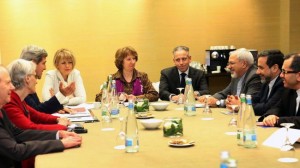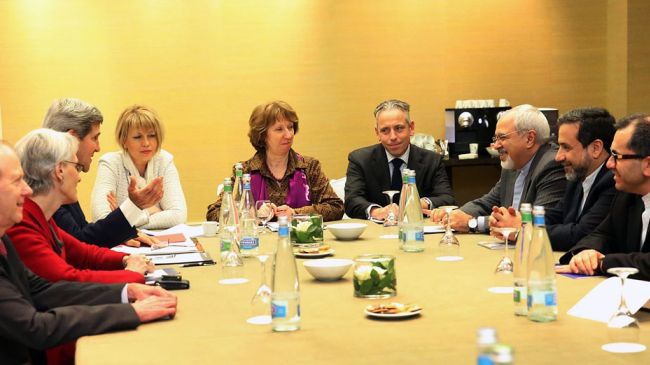 Iran, Russia and China are in touch to reach common ground in the lead-up to a new round of nuclear talks between Tehran and the P5+1 group, a top Iranian negotiator says.
Iran, Russia and China are in touch to reach common ground in the lead-up to a new round of nuclear talks between Tehran and the P5+1 group, a top Iranian negotiator says.Fresh from a two-day visit to Moscow and Beijing, Iranian Deputy Foreign Minister for Legal and International Affairs Seyyed Abbas Araqchi touched upon his negotiations with the Russian and Chinese officials, adding, �The constant consultations between Tehran, Moscow and Beijing were aimed at coordinating their positions in the run-up to the new round of talks with the P5+1.�
The next round of high-level talks between Iran and the six countries is to be held in Vienna on March 17.
Araqchi, who is a top Iranian nuclear negotiator�described the negotiations as �highly useful� and underscored the need for �more serious� consultations.
�In these consultations, detailed and important views were exchanged about the contents of the next-week meeting of Iran and the P5+1 in Vienna, including the issue of enrichment and its dimensions, alleviating the concerns of some of the parties regarding the operations at Arak heavy water reactor and nuclear cooperation,� Araqchi pointed out.
According to the Atomic Energy Organization of Iran (AEOI) Arak heavy water reactor is a �research reactor� and the Islamic Republic has reported its �peaceful nuclear activities� at the plant to the International Atomic Energy Agency (IAEA).
The reactor, which uses natural uranium to produce radio medicines, is planned to gradually replace the Tehran research reactor to produce medical radioisotopes for cancer patients.
Under a cooperation roadmap signed between Tehran and the IAEA in November 2013, Iran agreed, on a voluntary basis, to allow IAEA inspectors to visit Arak heavy water plant.
Iran and the five permanent members of the UN Security Council - the US, Britain, France, Russia and China - plus Germany are working to hammer out a comprehensive deal following the Geneva accord. Experts from both sides met in Vienna, Austria, last week.
By Press TV
The Iran Project is not responsible for the content of quoted articles.











